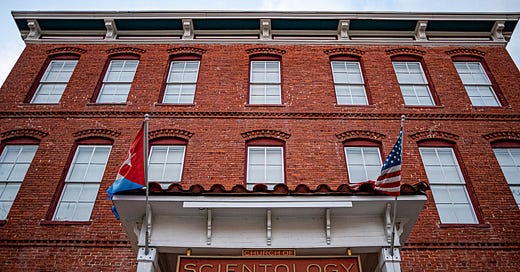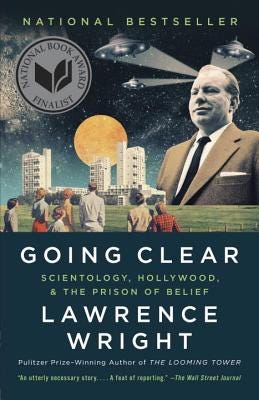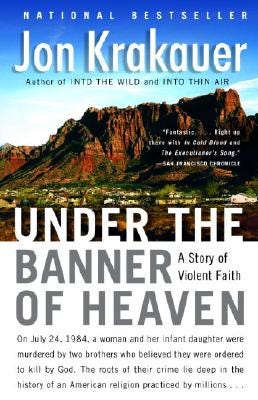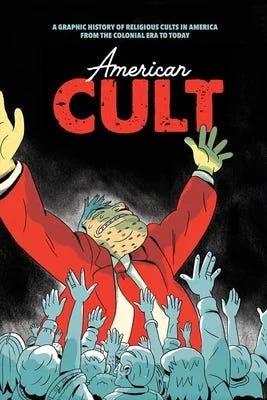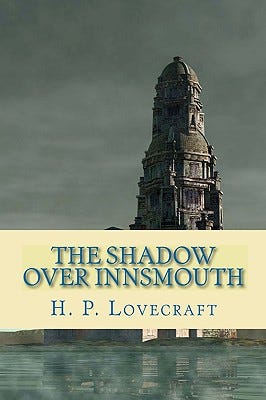Everything in America is a cult. Corporations have their own internal cultures designed towards making employees feel like they are part of something important and messianic, instead of like, a coffee chain. You regularly hear CEOs saying stuff like, “We’re not selling cars, we’re selling dreams.”
That Don Draper nonsense might just be canny advertising, but it’s also completely batshit insane, and people that actually work at these companies often believe it. American culture spends a lot of time talking about freedom, but the society is also set up in a way that fundamentally disempowers anyone but the most rich, and that effectively isolates us from our friends and neighbors. So why would anyone be shocked that so many Americans retreat into the safety of totalitarian cults, which offer certainty and protection and connection with something bigger?
It feels nice to belong! It feels nice to be one of the only people with access to forbidden and arcane knowledge about how the world really works! But if we want to ever build communities in which we really are empowered, we need to know how to not get sucked into the creepy shit. Here are some of the best books I’ve read on cults. Gimme yours in the comments.
1. Cultish by Amanda Montell
This won my “Favorite Book of 2022” because it’s not just about cults, but about the language cults employ, and how this language seeps into all corners of American life. Corporations use cult language, exercise classes like CrossFit and SoulCycle use cult language, and American politicians use cult language.
Cultish is a good primer on recognizing cult-speak, and in showing how it’s designed to shut down our brains so we can just obey what we’re being told.
2. Going Clear by Lawrence Wright
The story of Scientology is absolutely wild. For that alone, this book is worth reading. From founder L. Ron Hubbard’s truly surreal attempts at founding his own religion and later, even trying to establish his own country, to current founder David Miscavige’s use of celebrity to promote the church into prominence (if not respectability), this reads like a suspense novel.
If you don’t have time for the book, there’s a documentary version that’s currently on Hulu which is also extremely good. But I recommend the audiobook. I couldn’t turn it off.
3. Under the Banner of Heaven by John Krakauer
John Krakauer has made a career of writing about people at the extremes — mountaineers in the catastrophic Into Thin Air, free spirits in Into the Wild, and then Under the Banner of Heaven, a history of the Mormon faith coupled with a true-crime story about violence committed by one of the Church of Latter Day Saints’ many fundamentalist schism groups.
I would again recommend the book before anything else, but Hulu adapted this into a pretty solid show starring Andrew Garfield recently as well.
4. American Cult
The United States has a long history of cults and new religious movements. There have been utopian socialist experiments, there have been violent doomsday cults, there have been vegetarian communes, there have been totalitarian revolutionary movements.
American Cult is a recent anthology of comics covering just a few of the many, many cults that have popped up over the two and a half century long American experiment.
5. The Shadow Over Innsmouth by H.P. Lovecraft
Much of the best horror fiction has cults at the center — Stephen King’s The Stand and The Mist have solid cult vibes, and Shirley Jackson’s “The Lottery” remains one of the best horror stories of all time.
The Shadow Over Innsmouth is one of Lovecraft’s most effective horror stories, but I include it here because Lovecraft was an enormous racist, and in many of his stories, cults are just a way of coding his anxieties around race-mixing and immigration in the United States. For him, stuff that isn’t western is inherently sinister, and becomes the source of much of his horror.
It’s easy to see an unusual belief system and immediately identify the weirdness as a cult, but the line between say, mainstream Christianity and messianic offshoots like the Branch Davidians, is not as thick as people would like you to think, and groups like Scientology have effectively exploited the difficulty in defining what counts as a “cult” and what counts as a “religion” when trying to protect themselves in court.
Innsmouth, like most Lovecraft, is actually worth reading in spite of its racism, because as I’ve argued elsewhere, he’s a pretty good window into understanding why white America is such a trainwreck.
But even so — it’s good to be cautious about what you label a cult.

